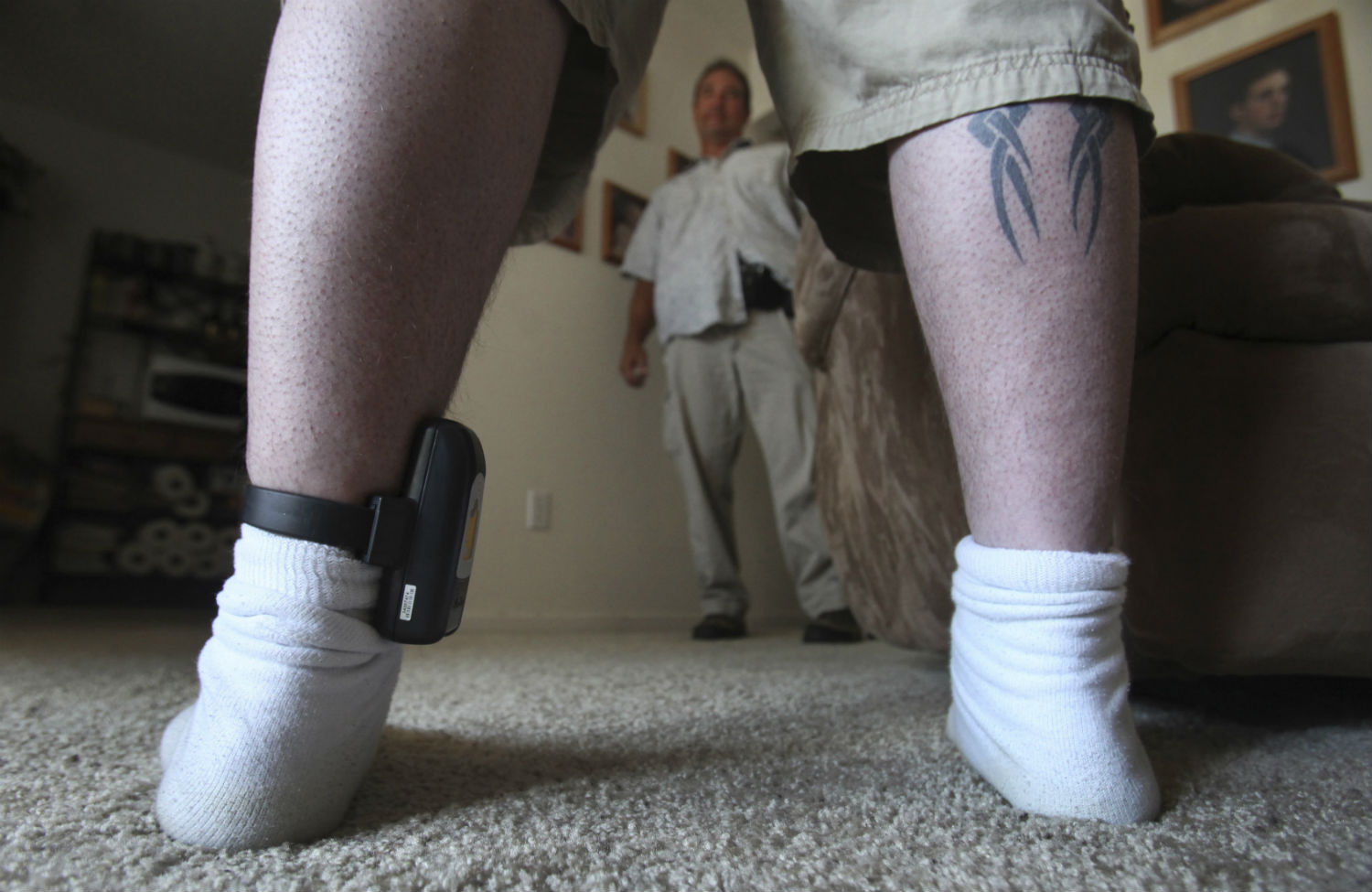At Public Seminar, Alexandra Mateescu writes about how increasingly sophisticated mobile and satellite technology has made it possible to minutely monitor former prisoners in the US using ankle bracelets and smartphones. Not only is this disturbing for how it extends incarceration beyond the prison walls; it has also created a lucrative market for tech companies to build tools that enable what they themselves term “virtual incarceration.” An excerpt:
Finally, there is another strand emerging out of imaginings of a high-tech future of incarceration. In Beyond the Bars, a Deloitte report that speculates on the possibility of “virtual incarceration,” the authors ask readers to imagine ankle monitors linked to mobile phone or tablet, which incorporate “game mechanics [that] encourage pro-social behavior and allow progress visualization.” While the report is largely speculative, companies like Corrisoft already offer to track offenders via smartphone, paired with a Bluetooth chip-containing ankle monitor to ensure that he or she has their phone with them at all times. Among this year’s winners of UPenn’s app-design contest, AppItUp, was a pitch for an app that serves as an “alternative to brick-and-mortar prisons” for nonviolent offenders. An example of how it might work is provided: “When you get a 100 points, maybe you get your zone of movement or your curfew extended.”
This is the language of self-empowerment and personal habit management familiar to the world of fitness tracking apps and devices — technology as an aid to moral realignment. It’s an extension of the logic which compares electronic monitoring to assistive health technologies; as one journal article puts it:
…an EM bracelet is a device that assists offenders to avoid the temptation of crime. By analogy, a pacemaker is a device that assists individuals whose heart muscles do not function properly and eyeglasses are devices that assist individuals whose eyes do not focus properly.
Just as a pacemaker aids someone whose heart muscles are too weak on their own, so too, the claim goes, can technology correct an arrhythmia of the soul. But what happens when access to space and basic rights becomes tied in this way to minute metrics of moral health?
Image: An electronic ankle monitor. Via The Nation.
